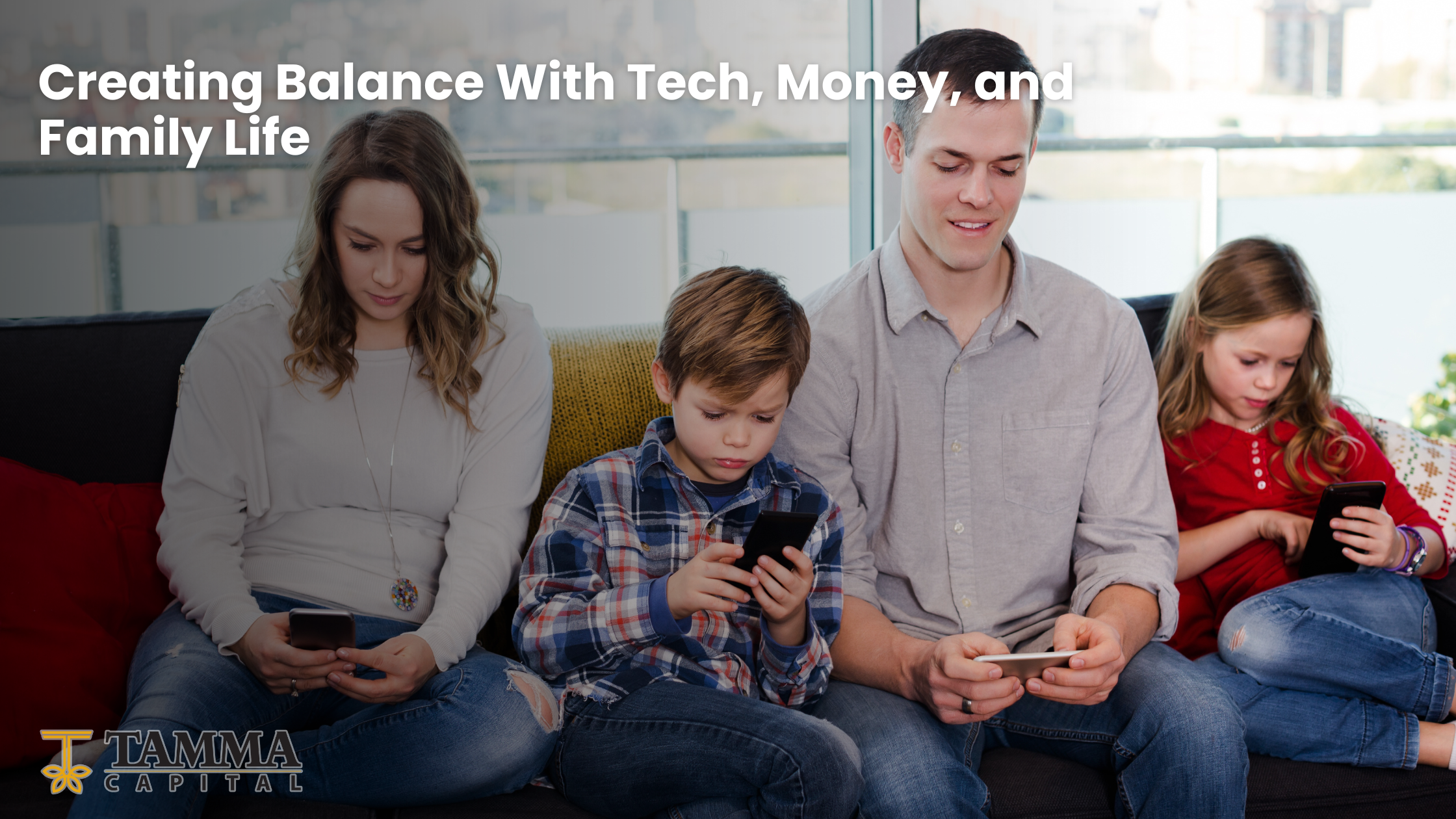Ep. 214 – Scott Hanselman – How Technology Impacts Our Family, Finances, and Well-Being and What We Can Do About It
How much tech do you let into your life? Do you even know why you let certain tech into your life?
I’m thrilled to welcome back my friend and Microsoft VP, Scott Hanselman. It’s been almost four and a half years since our last conversation, and so much has changed for both of us—at home, at work, and everywhere in between.
Scott and I dive into the heart of his recent TEDx Talk, where he questions whether technology is truly delivering on its promises of convenience, connection, and community. We discuss the concept of the “third place”—those spaces outside of home and work where real community forms, and how the pandemic and our increasing reliance on technology have shifted those boundaries.
Scott gets personal about his own life transitions, raising teenagers in a hyper-connected world, and the realities of tech overload. He shares the emotional story of how his parents once sold their van to buy him a Commodore 64 computer—a singular act that changed the course of his life and continues to shape his perspective on investing in our kids’ potential.
We also explore the emotional side of money—how we manage stress, organize family finances, and have those sometimes tough conversations with our partners. Scott even shares the allowance system that’s kept the peace in his own marriage for 25 years!
Whether you’re navigating new technology at home, feeling overwhelmed by all life throws at you, or simply longing for a little more harmony, I think you’ll find our conversation both insightful and relatable, with some serious nostalgia along the way.
Please enjoy my conversation with Scott Hanselman.
Connect with Paul
Contact Paul here or schedule a time to meet with Paul here.
Follow Paul on LinkedIn, Instagram, and Facebook.
And feel free to email Paul at pfenner@tammacapital.com with any feedback, questions, or ideas for future guests and topics.
ADDITIONAL RESOURCES YOU MAY LIKE
1 Big Idea to Think About
Avoid "sleepwalking" through life with technology—actively questioning whether new tools or apps truly enhance our lives or quietly erode our well-being can help us make more intentional, balanced choices for ourselves and our families.
1 Way You Can Apply This
To maintain emotional and financial balance in a tech-driven world, try intentionally creating "third places"—spaces outside of work and home where you can build real-world connections, like a library or coffee shop. By scheduling regular time in these physical community spaces, you nurture personal well-being and avoid the isolation that can come from letting technology blur all aspects of life into one, ultimately enriching both your relationships and your financial journey.
1 Question to Ask
Am I letting technology quietly take over parts of my life without realizing it, or am I consciously choosing tools and habits that truly improve my well-being and relationships?
Key Moments From the Show
00:00 Scott describes a podcasting tip: always hit record early, because great moments often happen before the "official" start.
00:35 Paul and Scott reflect on four and a half years since their first conversation and highlight the life transitions that have happened since.
01:45 Scott introduces his recent Portland TEDx Talk, pondering whether technology has delivered on its promises and the impact of tech on daily life for families.
03:08 Paul praises the emotional depth of Scott’s TED Talk, referencing the major themes: connection, convenience, and creativity.
04:13 Scott explains the concept of "the third place"—the importance of having spaces outside home and work for community and well-being, and how COVID and the Internet have blended these roles.
07:17 Scott discusses the difficulty of remote interactions—how being alone in a home office differs from physical togetherness, and the mental fatigue caused by virtual communication.
08:58 Paul shares strategies to recreate a sense of community, like working from libraries or cafés, and emphasizes the value of face-to-face connection on Zoom.
10:29 Scott and Paul reminisce about Scott’s "Scaling Yourself" productivity talk, segueing into the persistent stress and pressure many families feel despite high achievement.
12:13 Scott reflects on financial insecurity, the impermanence of things, and how uncertainty is a source of modern stress—even for well-resourced families.
13:45 Paul explains the emotional side of financial planning, noting that most of his work involves understanding clients’ feelings about money, not just managing assets.
14:01 Scott shares how his financial advisor acts as an emotional therapist, and details his family’s allowance system to minimize money stress and arguments in his marriage.
16:27 Scott describes their cash allowance system—how it helps manage small expenses and reduces financial friction in the marriage.
18:51 Paul brings focus back to the stories from Scott’s TED Talk, asking Scott to share about his parents selling their van for a Commodore 64, and his son’s request to simplify his iPhone.
19:22 Scott addresses his son’s decision to use a "dumb phone" to avoid distraction—a move motivated by struggles with social media addiction and attention span.
22:53 Paul confesses to finally giving his teens access to Snapchat for sports team communications and shares his discomfort with social media, especially location sharing.
24:30 Scott warns about Snapchat’s location features and the risks of connecting with strangers, advising parental moderation and awareness.
26:45 The conversation turns to Gen Z’s interest in retro tech, physical media, and the upside of tactile, offline experiences in a hyper-digital world.
27:39 Scott describes his family's modest beginnings, borrowing school computers, and the moment his parents sold their van to buy a Commodore 64—an act that changed his trajectory.
32:52 Paul links Scott's stories to the concept of "money scripts," discussing how formative childhood experiences influence lifelong financial attitudes.
33:51 Scott reflects on frugality as a Scottish family value, recounts stories of resourcefulness, and the impact of repairing and reusing as core life lessons.
38:55 As the episode wraps, Scott advises listeners to "avoid sleepwalking" with technology—urge mindful use, regular audits, and choosing tools that serve creativity, connection, and true convenience.
41:40 Paul thanks Scott and celebrates the Emotional Balance Sheet podcast’s five-year milestone, highlighting their shared commitment to long-term conversations about technology, money, and emotional health.
Resources Featured in This Episode:
Scott Hanselman - LinkedIn




